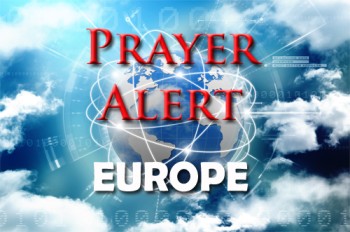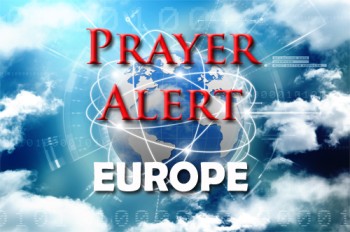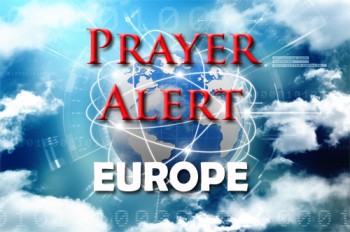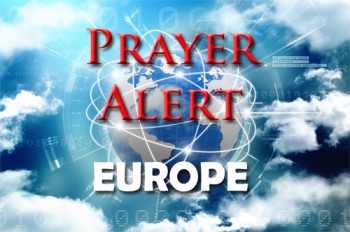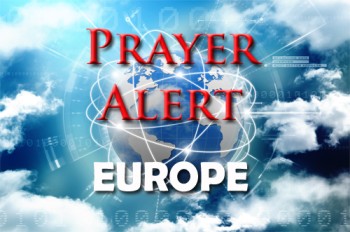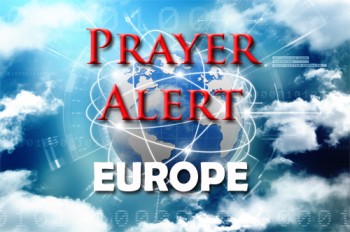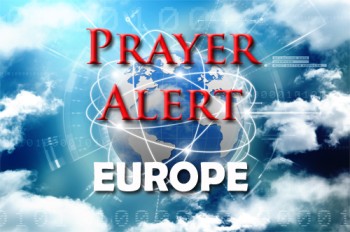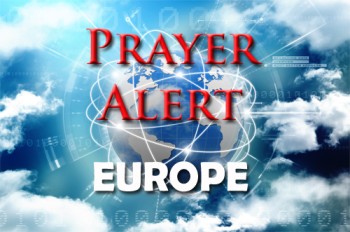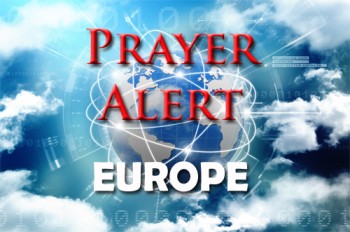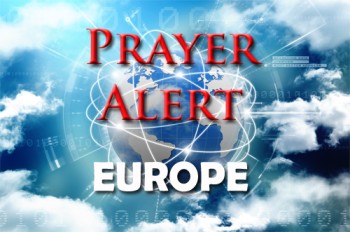Displaying items by tag: Europe
Italy: PM being investigated by ICC for releasing Libyan suspect
Giorgia Meloni has revealed she is under judicial investigation after her government released Libyan police officer Osama Elmasry Njeem, wanted by the International Criminal Court (ICC) for alleged crimes against humanity, including murder, torture, and rape. Njeem, detained earlier this month in Turin, was unexpectedly repatriated to Libya on an Italian aircraft two days after his arrest. The ICC has demanded an explanation, stating it was not consulted. Meloni, who now faces allegations of aiding a crime and misuse of public funds, has denied wrongdoing. Njeem is linked to Libya’s Special Defence Force (SDF), operating notorious detention centres implicated in atrocities during Libya’s post-Gaddafi civil war. His release has strained Rome’s relations with the ICC, which has recently expanded investigations into crimes in Libya. Opposition leaders are demanding further explanations in parliament.
Italy: social media tourists overwhelm ski resort
A surge of ten thousand unexpected day-trippers overwhelmed the Italian ski resort of Roccaraso after viral social media posts promoted the area’s heavy snowfall. Influencer Rita De Crescenzo’s videos encouraged budget tour companies to offer cheap bus trips, drawing massive crowds. On 27 January, 220 tour buses and countless cars clogged the narrow roads, frustrating local residents and causing safety concerns. Chaos ensued on the slopes as visitors disregarded ski etiquette, used makeshift sleds like saucepans, and even lit barbecues. Authorities have since introduced crowd-control measures, including bus restrictions. Roccaraso’s mayor, describing the situation as ‘hellish’, fears that an even larger influx could arrive next weekend. Officials are now working with law enforcement to manage future crowds and prevent similar disruptions.
Trade: EU’s desire to negotiate with Trump
The EU has signalled its readiness to negotiate with Donald Trump, hoping to avoid a damaging trade conflict. Ursula von der Leyen highlighted growing global competition and warned against trade policies that disrupt economic bonds. Trump’s administration has begun investigating US trade deficits and unfair practices: Germany is a potential target, but chancellor Olaf Scholz has expressed cautious optimism after his first contacts with Trump's administration. Von der Leyen reaffirmed the EU’s commitment to collaboration with global partners, including India and China; she also voiced support for the Paris climate agreement, which Trump has exited. Noting that trade between the USA and the EU is worth 1.5 trillion euros, she said, ‘No other economies in the world are as integrated as we are. So our first priority will be to engage early, discuss common interests, and be ready to negotiate.’ EU officials see Trump’s policies as a wake-up call to fix their economies and become more competitive.
Netherlands: government has to reduce nitrogen pollution
A Dutch court has ruled that prime minister Dick Schoof’s government must intensify efforts to reduce nitrogen pollution in protected areas, marking a legal victory for Greenpeace. Half of the country’s vulnerable habitats must meet nitrogen thresholds by 2030, with noncompliance incurring a €10 million penalty. Schoof’s administration, elected in 2024, shifted away from its predecessor’s €24.3 billion sustainability fund, favouring technological and voluntary measures instead. However, the court called for tangible financial and regulatory actions to address emissions from agriculture, industry, and transport. Greenpeace celebrated the verdict but emphasised the need for immediate action. The verdict reverberates with other countries facing similar legal challenges - seen now as a key tool to compel governments to environmental action - for the same reasons; it will also risk further protests from Dutch farmers who are concerned about anticipated herd reductions and new farm standards. The Schoof administration may appeal the decision, balancing stricter measures with potential rural unrest and EU compliance demands.
Turkey: 76 killed in hotel fire
A devastating fire at the Grand Kartal Hotel in the Kartalkaya ski resort has killed at least 76 people, marking one of the country’s deadliest hotel fires. Survivors reported that fire alarms failed to activate, and experts suggested that inadequate fire safety measures contributed to the high death toll. The fire, which began in the restaurant area, spread rapidly, forcing some guests to jump to their deaths. Discrepancies emerged regarding the hotel’s fire safety certification, with officials noting the absence of adequate fire escapes, alarms, and suppression systems. Nine individuals, including the hotel owner, have been detained as part of the investigation. Experts said that properly designed fire safety systems and escape routes could have mitigated the tragedy. Authorities continue to investigate claims of negligence and systemic failures, as questions grow over how such a disaster occurred in a major resort.
Poland / Ukraine: agreement on exhumation of WW2 massacre victims
Tensions between Poland and Ukraine have been strained for years over the Volhynia Massacre, in which Ukrainian paramilitary forces killed around 100,000 Polish civilians during World War 2. Polish prime minister Donald Tusk has now announced that exhumations of the bodies will begin, thanks to cooperation between Poland and Ukraine’s cultural ministries. While Poland describes the massacre as genocide, Ukraine disputes this, viewing it as part of a broader conflict. The dispute intensified after Ukraine banned the search for Polish victims in 2017, but recent efforts, including a joint commemoration by presidents Duda and Zelensky, aim to heal wounds. Meanwhile, Tusk has accused Russia of plotting terrorist acts against Western airlines : see
Georgia: former PM brutally attacked
Giorgi Gakharia, former prime minister and leader of the opposition party For Georgia, is in hospital with facial and head injuries, after a brutal assault by several men in a hotel lobby. His health was later confirmed to be stable. His party, calling this a politically motivated attack, accused the government of attempting to intimidate opposition voices. Georgia’s ongoing political crisis intensified after the disputed October parliamentary elections. Protests against the ruling Georgian Dream (GD) party have erupted in Tbilisi and other cities, particularly after the government’s announcement to delay EU accession talks. The protests have led to widespread crackdowns, including arrests and beatings, drawing criticism from human rights groups. The attack on Gakharia follows similar assaults on opposition members and journalists.
Ukraine: different attitudes from Trump and Biden
Donald Trump has expressed sympathy for Russia’s opposition to Ukraine joining NATO, suggesting such membership provokes Moscow and risks escalating conflict. Trump criticised the Biden administration’s support for Ukraine’s NATO ambitions, stating that Russia has long opposed NATO’s presence near its borders. Meanwhile, the Biden administration is preparing a significant final weapons package for Ukraine before the transition of power. While details remain unclear, it follows earlier military aid, with most promised equipment already delivered. Ukraine’s foreign minister announced the rescheduling of a meeting with Trump’s special envoy, emphasising the need for a meaningful dialogue. On the battlefield, tensions have escalated. Ukraine reported 94 clashes in Russia’s Kursk region, double the prior day’s count, and announced a new offensive. Fighting persists in Kurakhove, where Russia claims control, but Ukrainian forces dispute this, accusing Russia of using scorched-earth tactics. Both nations report heavy losses, but independent verification remains elusive.
France: Le Pen’s death highlights his daughter’s rise
Jean-Marie Le Pen, founder of France’s far-right National Front (FN), has died at 96, leaving behind a divisive legacy. Known for incendiary rhetoric, he propelled anti-immigration nationalism into mainstream French politics. His controversies included dismissing Nazi gas chambers as a ‘detail’ of history and multiple convictions for inciting racial hatred. Although he never held major office, his influence reshaped French political discourse, making immigration central to national debates. His death comes as his daughter, Marine Le Pen, builds momentum toward possibly becoming France’s next president. Since expelling her father from the party in 2015, she has worked to rebrand FN (now the National Rally) by moderating policies and rhetoric. Abandoning her father’s hardline stances on the EU and social issues, she has appealed to a broader electorate. While her tone is subtler, critics argue her nationalism echoes his. Recent polls suggest she would easily win a presidential election if it was held now - a sign of her continued ascent in French politics.
Azerbaijan: Putin urged to accept responsibility for air crash
President Ilham Aliyev has urged Russia to accept responsibility for the Christmas Day crash of an Azerbaijan Airlines plane, which killed 38 of the 67 onboard. The flight, from Baku to Grozny, was diverted from Chechnya and crashed in Kazakhstan. Vladimir Putin has apologised but stopped short of admitting fault, attributing the tragedy to Russian defences countering Ukrainian drone attacks. Aliyev criticised initial Russian explanations, including claims of a gas cylinder explosion and bird strikes, as ‘foolish and dishonest’. He acknowledged the incident was accidental but demanded that Russia admit guilt, punish those responsible, and provide compensation: he commented, ‘No one would have thought that in a friendly country, our plane would be fired at from the ground’. The crew members were honoured for landing the plane in a way that allowed 29 people to survive, even though it led to their own deaths.
